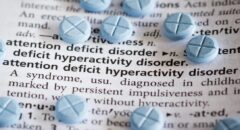
Actress and singer Audra McDonald made history during the 2014 Tony Awards when she won her sixth Tony for her leading role as Bille Holiday in “Lady Day at Emerson’s Bar & Grill”. In her moving acceptance speech, McDonald not only thanked her parents for their support, but also for their life-changing decision to not put her on ADHD medication as a child.
“I want to thank my mom and my dad in heaven for disobeying the doctor’s orders and not medicating their hyperactive girl,” she said onstage. “And finding out what she was into instead and pushing her into the theater.”
Although some took offense to McDonald’s comments, she recently penned a response to share why publicly thanking her parents for their struggles and making “a very personal, difficult” decision was exactly what she wanted to do.
SIGN UP FOR OUR NEWSLETTER HERE!
After months of increasingly frustrating, painful moments watching their child struggle, and after talking with psychologists and my teachers — but not yet having the benefit of decades of research, media and social discourse on what was still a relatively new medication — my parents happened to attend a performance at a local dinner theater. Although my family was a very musical one — my dad was a high school music teacher, my grandmothers both taught piano, and, as you yourself were kind enough to bring up in your letter, my aunts used to sing at various black churches in California in the ’50s and ’60s — we were not theatergoers.
That night, at that theater in Fresno, Calif., my mother and father saw a troupe of young children performing in a pre-show cabaret. A lightbulb went off in their heads and they decided to encourage me to audition to be a member of this troupe, in hopes that it might be a good outlet for my energy, an oasis for my emotions and possibly a place for me to build some desperately needed confidence.
That moment, that decision, that “lightbulb” was what put my feet on the first tiny bricks of the yellow brick road that led me toward the Oz that is my life in the theater. All because they were struggling with the question of how best to help their struggling, unhappy, hyperactive child.
She goes on to write:
If that moment had not happened — if they had decided to try another tactic (medication or anything else), and I had stayed on what had been my path up until that point — I have no doubt that while my life might have been a fantastic one, it would not have been one in the theater. I have my parents to thank for making what was ultimately a life-changing decision for me.
Recent research shows that African American children are half as likely to be diagnosed with attention-deficit/hyperactivity disorder (ADHD) than their white peers.
“There just seems to be more wariness and concern in African American groups,” both about being diagnosed with ADHD and the medications used to treat the condition, said Dr. Tanya Froehlich, an ADHD researcher at Cincinnati Children’s Hospital Medical Center.
The decision whether or not to medicate isn’t easy for any parent, but for McDonald, “The only common factor that goes into making that decision, which is indisputably true for almost all parents, is the indescribable amount of love they have for their child.”
Visit the BlackDoctor.org ADHD center for more articles.








